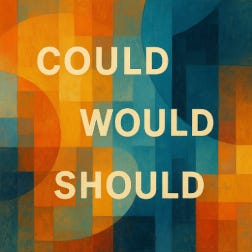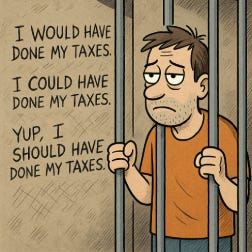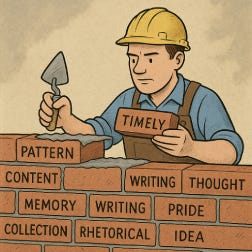The Words We Use: How Language Creates Our Reality
When you talk to yourself, do you take stock of the words you use? Take the time to notice them, especially these three invisible modal verbs: could, would, and should. These seemingly innocent terms are creating something more powerful than most of us realize. They are reality-shaping words that can change how we perceive ourselves.
The Comfortable Prison of Maybe
Sentences like “I could call my friend,” “I should go to the gym,” or “I would be happier if I had an agent” suggest that we believe we are stating facts rather than expressing intentions or possibilities. In a sense, we are—but are these doable actions? For example, when I say I can swim in the ocean, I am not stating a potential action; I am stating a capability that I possess. However, whenever I use “could,” “would,” or “should,” what am I stating? Or am I subtly placing myself in an imaginary realm that exists alongside reality?
Our coulds, shoulds, and woulds cause a split in our consciousness. We want to be in the present moment, but another part lives in a hypothetical realm. In this place, things could be, would be, or should be different. We’re never fully present because we’re always partially somewhere else. That somewhere is an imaginary world that avoids and lies about our present tense.
In this imaginary world, we’re the person who exercises regularly, who maintains close friendships, and who makes life-changing decisions. It’s a pleasant place to visit. The problem is that while we’re mentally living there, we’re simultaneously acknowledging that we don’t actually live there at all. As the expression goes, ‘don’t talk about it, be about it.’ We’re stuck in a kind of double bind, being aware of what we could do but not doing it consistently.
These modal verbs create a psychological escape hatch. We feel like we’re addressing something important while avoiding the vulnerability and effort of actually taking action. We get to maintain an image of someone who wants to be fit without the discomfort of going to the gym. We want to be creative and know what we should do. But our excuse is more creative than our work output. And in doing so, we preserve our imaginary identity.
Two Worlds at Once
The distance between these two worlds can be a place of suffering. The gap between who we “should” be and who we actually are generates shame, frustration, and a nagging sense of inadequacy. We’re comparing our authentic selves to our idealized one. And, of course, reality never measures up.
Compare the feelings expressed in these statements: “I should start that project” versus “I am starting that project.” The first keeps you in possibility, in someday, in the comfortable distance of intention. The second puts you squarely in the present moment, in a state of commitment, in the territory of actually creating something tangible.
Creating Your Inner World
Try a different label for the same sensations: “I’m energized” or “I’m alert.” Notice how the experience shifts. The same body, different realities, created by different words.
This is why identity statements are so powerful. “I am a failure” creates an entirely different reality than “I failed at this particular task.” The first makes failure a permanent, defining characteristic. It closes doors, narrows possibilities, and becomes a self-fulfilling prophecy. The second describes a specific event that has already occurred, leaving the future open.
How Does That Work With: Could, Should, and Would.
When we say “I can’t do that,” you’re not making a neutral observation. We’re constructing impossibility by closing neural pathways before they even have a chance to form. We’re creating a reality in which possibilities are impossible for you.
Instead of :
“I could learn to paint,” try “I am learning to paint.”
“I should be more patient,” try “I am practicing patience.”
“I would be happy if,” try “I am taking steps toward happiness.”
The above isn’t about lying to yourself or denying difficulties. It’s about anchoring yourself in what’s actually happening, rather than in imaginary, never-to-be-realized outcomes. You’re trying to inhabit the present tense, reality, rather than its imaginary cousin – maybe.
When you use present-tense language, something shifts. You stop living in the space between who you are and who you imagine you should be. You stop investing energy in hypothetical worlds and start engaging fully with the one you’re actually in.
So?
Start paying attention to your words, especially those small modal verbs. Notice when you’re using language to escape into imagination rather than to engage with the present. Notice the difference between “I could” and “I am,” between “I should” and “I choose.”
Your words are more powerful than you think. They’re not just sounds or symbols. They’re the very building blocks of your experienced reality. Choose them carefully. They’re creating your world, one sentence at a time.





Wonderfully helpful and hopeful!
Beautiful piece, William. This is certainly something that I had to teach myself over the years as it didn’t come that naturally to me